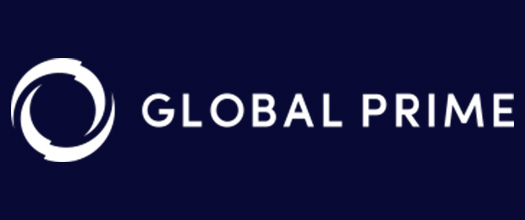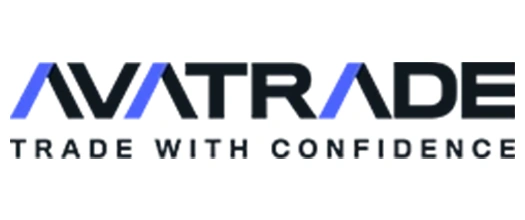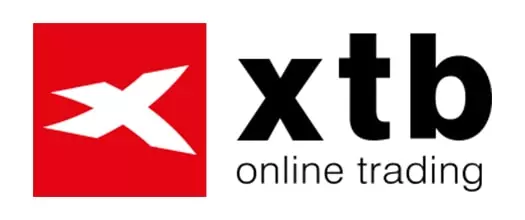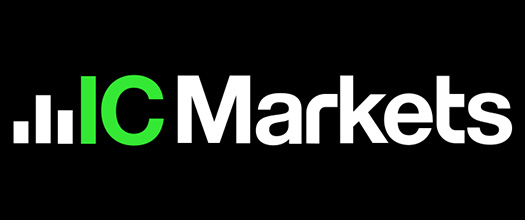- Jump to:
- Main features of the best Oman Forex brokers
- Forex Brokers in Oman Compared by Spread
- Account Types and Commissions
- Forex Legislation
- Financial Regulators
- Payment Methods
- Trading Software
- Mobile Trading
- FAQ
Our team of expert traders tested many regulated and trustworthy forex brokers that accept traders from Oman and compiled a toplist with the best among them. Each broker operating in Oman received a quality score based on several factors, including Trustpilot rating, regulation, fees and commissions, available trading platforms, customer service and more.
 Fusion Markets74-89% of retail CFD accounts lose money
Fusion Markets74-89% of retail CFD accounts lose money AxiThe vast majority of retail client accounts lose money
AxiThe vast majority of retail client accounts lose money FP Markets73.85% of retail investor accounts lose money
FP Markets73.85% of retail investor accounts lose money Pepperstone75.5% of retail investor accounts lose money
Pepperstone75.5% of retail investor accounts lose money Global Prime74-89% of retail CFD accounts lose money
Global Prime74-89% of retail CFD accounts lose money XM Group72.82% of retail investor accounts lose money
XM Group72.82% of retail investor accounts lose money
Below you can find a comprehensive comparison table of forex brokers with Islamic accounts for traders in Oman. We rank them based on several factors including: regulation, spreads and commissions, Trustpilot rating, trading instruments, trading platforms, deposit and withdrawal methods.
Main features of the best Oman Forex brokers
- Min Deposit$0Trading InstrumentsForex, Commodities, Indices, Crypto, US StocksRegulatorsASIC, FSA (Seychelles), VFSC (Vanuatu)Trading PlatformsMetaTrader4, MetaTrader5, cTrader, DupliTrade, Fusion+ Copy Trade, TradingViewSpread0.9 pips Classic; 0.0 pips ZeroLeverage1:30 (1:500 for forex and metals via VFSC)Deposit MethodsVisa, Mastercard, PayPal, Skrill, Neteller, Fasapay, Jeton Wallet, Perfect Money, Online Naira, Doku, Bitcoin, Ethereum, Litecoin, USDT, Tether, Ripple, bank wire, ZotaPay, VNPay, DuitNow, XPay, DragonPay, VAPay, FasaPay, AstroPay, PayID, Jetonbank, Sticpay, Interac, LuqaPay, Zotapay, MiFinityWithdrawal MethodsVisa, Mastercard, Bank Wire, Skrill, Neteller,Bitcoin, Ethereum, Litecoin, Tether, Ripple, MiFinity, Interac, PayPal, AstroPay, Jetonbank, DragonPay74-89% of retail CFD accounts lose money
Traders from Oman are able to join and trade forex pairs, indices, metals, cryptocurrencies, and other popular tradable instruments. The broker carries out its operations under licenses issued by ASIC and FSA, and VFCS. Intuitive platforms like MT4, MT5, cTrader, WebTrader, TradingViews, and Dupli Trade are available to traders of Oman. Spreads are competitively low, starting from 0.0 pips on major currency pairs traded with a Zero Account and adding a 0.9 mark-up to the spread for Standard Account users. No commission is charged on Standard Account deals, while Zero Accounts will charge a small commission of $2.25 per side per lot traded.
- Min Deposit$0Trading InstrumentsForex, Cryptocurrencies, Indices, Commodities, BondsRegulatorsASIC (No. 385620), VFSC (No. 40256)Trading PlatformsMT4 Desktop, MT4 Webtrader, MT4 AndroidSpread0.9 pips Standard, 0.0 pips RawLeverage1:500 (1:30 for ASIC entity)Deposit MethodsVisa, Mastercard, PayPal, Skrill, Neteller, Gate8, Dragonpay, Fasapay, VNPay, Pagsmile, BPay, POLi, AstroPay, Bank Transfer, Interac, Perfect Money, PayID, Jeton, MiFinity, XPay, CryptoWithdrawal Methods
Mastercard, Visa, Local Bank Transfer, Bank Wire Transfer, Skrill, Neteller, AstroPay, PayPal, Dragonpay, Perfect Money, Jeton, Interac, Cryptocurrencies
74-89% of retail CFD accounts lose moneyIf you are a trader from Oman, you can check the tradable products offered by Global Prime. Thanks to licenses from ASIC and VFCS, the brand welcomes traders from different parts of the world, offering CFDs on forex, indices, shares, and other products. The MT4 platform allows smooth trading on various devices, with low trading fees attached to your trades. The two types of accounts available to traders from Oman include Standard and Raw – the first comes with no commission and spreads starting at 0.9 pips on major currency pairs, while the second offers 0.0 pips of starting spread and a small round-trip commission of $7.
- Min Deposit$0Trading InstrumentsForex, Stocks, IPOs, Indices, Commodities, CryptocurrenciesRegulatorsASIC, FCA, CySEC, DFSA, FSA (Saint Vincent and the Grenadines)Trading PlatformsMT4 Desktop, MT4 WebTrader, Axi MobileSpreadFrom 0.0 pips (Elite and Pro Accounts), 0.9 pips (Standard Account)Leverage1:30Deposit MethodsVisa, Mastercard, Bank Transfer, Neteller, Skrill, AstroPay, Fasapay, Przelewy24, Boleto, Pix, Bitcoin, Ethereum, Ripple, Litecoin, Tether, Stellar, POLi, iDEAL, Sofort, GiropayWithdrawal MethodsMastercard, Visa, Bank Transfer, Przelewy24, Fasapay, Skrill, AstroPay, Pix, Boleto, Neteller, Bitcoin, Ripple, Ethereum, Litecoin, Tether, StellarThe vast majority of retail client accounts lose money
With licenses obtained by authorities like CySEC, FCA, and ASIC, the broker welcomes traders from different regions, including Oman. Opening a trading account is a smooth process, allowing traders to choose between Standard, Pro, or Elite account form. All three offer over 260 CFD products available on MT4. The Standard account comes with the highest spread values, starting at 0.9 pips on major currency pairs. However, Standard orders will impose no commission. Meanwhile, the Pro and Elite accounts will offer low spreads that start at 0.0 pips. These trading profiles will impose low round-trip commissions of $7 and $3.50 per lot traded via Pro and Elite accounts, respectively.
- Min Deposit$50Trading InstrumentsCFDs on Indices, Forex, Shares, Crypto, Futures, Commodities, Options, Interest Rates, Sectors, Bonds, Knock-out tradingRegulatorsASIC, FCA, DFSA, CFTC, FMA, FINMA, BaFin, MAS, JFSA, FSCA, BMA (Bermuda)Trading PlatformsMT4, L2 Dealer, ProRealTime, IG proprietary software, TradingViewSpread0.6 pips CFD trading; 0.165 pips DMA tradingLeverage1:30Deposit MethodsVisa, Mastercard, Bank Transfer, Wire Transfer, Visa Electron, Discover, PayPal, Apple Pay, BPAYWithdrawal MethodsVisa, Visa Electron, Mastercard, Discover, Bank Transfer70% of retail client accounts lose money
Operating in multiple markets thanks to regulators like ASIC, FCA, DFSA, CFTC, FMA, FINMA, BaFin, MAS, JFSA, FSCA, and BMA (Bermuda). Traders from Oman can choose to register either through the BMA-regulated entity of IG or register with the DFSA-regulated entity. The second option, however, implements mandatory leverage restrictions for retail traders. Platforms like L2 Dealer, MT4, and ProRealTime are available to traders from Oman. The broker offers low trading costs by charging no commissions and imposing tight spreads. Trading EUR/USD for instance will apply a minimum spread of 0.6 pips to the trade.
- Min Deposit$100Trading InstrumentsForex, Major stock indices, Cryptocurrencies, Commodities, Bonds, Individual Shares, ETFsRegulatorsFFAJ (License No.1574),CySEC (No. 347/17) ISA (No. 514666577), IIROC, ADGM / FSRA (No.190018), CBI (No.C53877), BVIFSC (No. SIBA/L/13/1049), FSCA(No.45984), ASIC (No.406684), JFSA (No. 1662)Trading PlatformsMetaTrader4, MetaTrader5, WebTrader, AvaTadeGO, AvaSocial, AvaOptions, DupliTradeSpreadFrom 0.9 pips (retail), 0.6 pips (pro)Leverage1:30Deposit MethodsVisa, Mastercard, Skrill, WebMoney, Neteller, bank wireWithdrawal MethodsVisa, Mastercard, Skrill, WebMoney, Neteller, bank wire76% of retail investor accounts lose money
Traders from Oman are free to join AvaTrade and create their accounts that will provide exposure to tradable markets like forex, commodities, stock, crypto, and more. The broker operates under licenses from ASIC, FFAJ, CySEC, ISA, IIROC, ADGM / FSRA, CBI, BVIFSC, and FSCA. The list of supported trading platforms includes MT4, MT5, WebTrader, AvaSocial, DupliTrade, and the AvaTrade app. Forex pairs like EUR/USD will come with competitive spreads of 0.9 pips and no commission charged for the execution of the trade.
- Min Deposit$100Trading InstrumentsForex CFDs, Commodity CFDs, Shares CFD's, Index CFDs, Crypto CFD'sRegulatorsSCB (No. SIA-F220), ASIC (No.391441), CySEC (No. 246/14), FCA (No. 921296)Trading PlatformsMT4, MT5, WebTrader, TradingView, Capitalise.ai, FlashTraderSpread0.1 pips on Standard and TradingView Accounts; 0.0 pips Raw AccountsLeverage1:30Deposit MethodsVisa, PayPal, Mastercard, Wire Transfer, Neteller, Skrill, Tether, Bitcoin, BPAY, Dragonpay, Fasapay, Interac, Pix, UnionPayWithdrawal MethodsMastercard, Visa, PayPal, Skrill, Neteller, Bitcoin, Tether, Wire Transfers, BPAY, Fasapay, Pix, Interac, UnionPay76.09% of retail investor accounts lose money
Global broker operating thanks to licenses from SCB (Bahamas), ASIC, FCA, and FSA (Seychelles). Omani traders can join the broker and explore markets like forex and CFDs on commodities, shares, indices, and more instruments. Supported platforms include MT4, MT5, TradingView, and WebTrader. You will be able to choose between Raw and Standard accounts. The former offers spreads on EUR/USD as low as 0.0 pips and a round-trip commission of $7 per lot traded. Meanwhile, Standard Accounts offer a minimum spread on EUR/USD of 1 pip and no commission charged on trades.
- Min Deposit$250Trading InstrumentsForex, Stocks, Indices, Commodities, ETFs, Indices, CryptocurrenciesRegulatorsFCA (License No. FRN 522157), CySEC (License No.169/12), FSC (FSC License No.: 000302/438), IFSC (License No.: 000302/46.), KNF (N/A), CNMV (N/A), BaFin (registered), FSCA (N/A), FSA Norway (registration ID - FT00118162)Trading PlatformsxStation 5, xStation MobileSpreadFrom 0.1 pips (Pro Account), 0.5 pips (Standard Account)Leverage1:30Deposit MethodsVisa, Maestro, Mastercard, Bank Transfer, Neteller, Skrill, PayPal, Ecommpay, PayUWithdrawal MethodsBank Transfers, Visa, Mastercard, Skrill80% of retail investor accounts lose money
Omani traders can choose to open an account with XTB and select either the DFSA entity or the FSC (Belize) version on the broker platform. Traders should keep in mind that DFSA requires mandatory leverage limits for retail traders (up to 1:30). The proprietary platform of XTB allows trading forex pairs, commodities, shares, indices, and other CFD instruments. Trading costs maintain competitive levels, with zero commission charged on your CFD trades. Any trading fees will be built into the spread, with major currency pairs like EUR/USD or GBP/USD having minimum spreads of 0.8 pips and 0.9 pips, respectively.
- Min Deposit$5Trading InstrumentsForex, Stocks, Indices, Commodities, Thematic IndicesRegulators(ASIC) (ref. No. 443670), FSC (license no. 000261/397), DFSA (ref. no. F003484), CySEC (license no. 120/10), CFTC; Registrations for EU passporting: - BaFin, CNMV, MNB, CONSOB, ACPR, FIN-FSA (Finland), KNF, AFM, FSA (Sweden)Trading PlatformsMetaTrader 4 and 5, MetaTrader 4 and 5 on mobile, MT4 WebTrader, MT5 WebTrader, MT4 MultiterminalSpreadFrom 0.0 pips (Zero Account), 0.6 pips (Standard and Micro Accounts)Leverage1:30Deposit MethodsVisa, Mastercard. Skrill, Bank Transfer, Neteller, Apple Pay, Google Pay, UnionPay, MaestroWithdrawal MethodsVisa, Mastercard, China Union Pay, Skrill, Neteller, Bank Transfer72.82% of retail investor accounts lose money
Global brokerage, operating under licenses from top-tier regulators like CySEC, BaFin, CNMV, MNB, CONSOB, FIN – FSA, KNF, ACPR, FSA (Sweden), and AFM. Omani traders can also join XM and open a Standard, Ultra Low, or Shares account, depending on their trading preferences. Showing a competitive pricing model, the broker introduces a spread on major currency pairs like the EUR/USD of 1.6 pips on the Standard Account and 0.8 pips on the Ultra Low Account. Platforms available to XM users include popular options like MT4, MT5, and the XM mobile app.
- Min Deposit$200Trading InstrumentsCFDs on Forex, Commodities, Index, Bond, Cryptocurrencies, Stock, FuturesRegulatorsFSA (Seychelles), CySEC, ASICTrading PlatformsMetaTrader4, MetaTrader5, cTrader, ZuluTradeSpread0.8 pips Standard, 0.0 pips Raw AccountsLeverage1:30Deposit MethodsBank transfer, Visa, Mastercard, PayPal, Skrill, Neteller, Visa Direct, SafeCharge, Transact365, eCommPay, CardPay, Bpay, FasaPay, Poli, RapidPay, Klarna, NuveiWithdrawal MethodsBank transfer, Visa, Mastercard, PayPal, Skrill, Neteller, Visa Direct, SafeCharge, Transact365, eCommPay, FasaPay, Poli, RapidPay, Klarna70.64% of retail investor accounts lose money
Broker operating on multiple global markets, with regulators like FSA (Seychelles), CySEC, and ASIC monitoring IC Markets’ operations. Omani traders can open various account types, including Demo, Standard, Raw Spread, cTrader Raw Spread, and an Islamic account. Offers a full range of CFD products, including markets like forex, commodities, cryptocurrencies, bonds, stocks, and more. To demonstrate the low cost of trading with IC Markets, we can take a look at the EUR/USD pair. The Raw Spread accounts come with an average spread of 0.6 and a commission of $3.50 (MetaTrader) or $3 (cTrader) charged per lot traded per side. The Standard account imposes no commission but the EUR/USD spread is slightly higher at 0.86 pips.
- Min Deposit$1Trading InstrumentsForex, CFD's on Stock, CFD's on IndicesRegulatorsCySEC, FSC (St. Vincent and the Grenadines), FSC (British Virgin Islands)Trading PlatformsMT4, MT5, WebTrader, IFXWebSpreadLeverageDeposit MethodsBank Wire, Visa, MasterCard, Bitcoin, Ethereum, Crypto, Neteller, SkrillWithdrawal MethodsBank Wire, Visa, Bitcoin, Ethereum, Crypto, Neteller, Skrill
Omani traders can join InstaForex and choose from a variety of account options. These include Insta.Standard and Insta.Eurica (standard lot sizes) as well as Cent.Standard and Cent.Eurica (cent account). Standard accounts come with zero commission and spreads that range between 3 and 7 pips. Meanwhile, Eureka traders will enjoy low spreads that start at 0.0 pips and low trading fees ranging between 0.03% and 0.07%. The broker is authorized to operate thanks to licenses from reputable regulators like CySEC and FSC (British Virgin Islands). Available trading platforms include the popular MT4 and MT5, MultiTerminal for MT4 as well as WebTrader and an MT4 mobile app.
Forex Brokers in Oman Compared by Spread
| Broker | EUR/USD | USD/JPY | GBP/USD | USD/CHF | AUD/USD | EUR/GBP | USD/CAD |
|---|---|---|---|---|---|---|---|
| 1. Fusion Markets | 0.07 | 0.13 | 1.01 | 0.37 | 0.90 | 0.23 | 0.14 |
| 2. Global Prime | 0.13 | 0.28 | 1.11 | 0.34 | 0.07 | 0.28 | 0.26 |
| 3. XM Group | 0.8 | 0.9 | 0.9 | 2.1 | 0.75 | 1.5 | 2.4 |
| 4. IC Markets | 0.8 | 0.8 | 0.8 | 0.8 | 0.8 |
| 0.8 |
| 5. IG | 0.85 | 0.9 | 1.40 | 1.95 | 1.01 | 0.9 | 2.1 |
| 6. AvaTrade | 0.9 | 1.3 | 1.3 | 1.3 | 1.1 | 1.2 | 1.8 |
| 7. XTB | 0.9 | 14 | 2.2 | 1.2 | 1.1 | 1.3 | 1.5 |
| 8. Eightcap | 1.00 (min) | 1.1 | 1 | 1.4 | 1.2 | 1 | 1.2 |
| 9. Axi | 1.2 | 1.4 | 1.2 | 1.5 | 1.3 | 1.1 | 1.4 |
| 10. InstaForex | 3 | 3 | 3 | 3 | 3 | 3 | 3 |
Account Types and Commissions
| Broker | Min Deposit | Account Types | Commission per Lot | Trustpilot Rating |
|---|---|---|---|---|
| 1. Fusion Markets | $0 | Zero, Classic, Islamic, Demo, Professional | $0 Classic Account, $4.50 round turn on Zero Account | 4.9 |
| 2. Axi | $0 | Standard, Elite, Professional, Demo, Islamic | $0 on Standard Account; $7 round trip on Pro Account | 4.8 |
| 3. Global Prime | $0 | Standard, Raw, Demo, Professional, Islamic | $0 Standard Accounts; $7 round turn on Raw Accounts | 4.5 |
| 4. IC Markets | $200 | Raw Spread cTrader, Raw Spread MT, Standard MT | $0 Standard MT; $6 round turn on Raw cTrader; $7 round turn on Raw MT | 4.5 |
| 5. AvaTrade | $100 | Retail, Professional, Islamic, MAM | $0 | 4.4 |
| 6. Eightcap | $100 | Standard, Raw, TradingView Account | $0 on Standard and TradingView Accounts; $7 round turn on Raw Accounts | 4.2 |
| 7. IG | $50 | Spread Betting Account, CFD Trading Account, Limited Risk Account, Islamic, Professional, Demo, Options and Share Dealing Accounts* | $0 | 3.7 |
| 8. XTB | $250 | Standard, Pro, and Islamic Accounts | $0 | 3.7 |
| 9. InstaForex | $1 | Insta.Standard, Insta.Eurica, Cent.Standard, Cent.Eurica | $0 | 3.2 |
| 10. XM Group | $5 | Ultra Low Micro, Ultra Low Standard, XM Zero | $0 Ultra Low Micro and Ultra Low Standard Accounts; $3.50 per side XM Zero Account | 2.9 |
Oman is an Arab country located in Western Asia, with a population of 5 million people and a gross domestic product of over US$79 billion. Strategically positioned next to the Indian Ocean, the country is an important trading port and has a free-market economy that has been steadily on the rise over the last two decades.
The main factor behind Oman’s economic growth is the production and export of crude oil, which is available in huge quantities in the country and represents nearly two-fifths of its gross domestic product. To prepare for the inevitable depletion of this natural resource, the Omani government launched an incentive in 1996 to diversify and privatize the local economy.
As a result of these efforts, Oman has expanded its stock market through the sale of several major state-owned companies, creating a favorable investment environment in the process. The country’s main financial regulator is the Central Bank of Oman, which was established in 1974.
It is tasked with the regulation of the local currency, the Omani rial (OMR). The local stock exchange, known as the Muscat Securities Market, began operations in 1988. The country has major trading partners in the face of India, the UAE, Japan, China, and Saudi Arabia.
Oman may not seem like an attractive trading destination but there are many foreign brokerages that service traders from this country. Most of them are licensed in other jurisdictions like Cyprus. Traders from the country have a broad choice of financial instruments, including dozens of currency pairs, contracts for difference, stocks, and indices. Brokerages servicing the local market are Shariah-compliant and provide Omani traders with the option to open swap-free Islamic accounts.
Oman Forex Legislation
There is a common misconception that trading is unsafe and illegal in Oman but this simply is not the case. There are Forex traders in the country but the Forex market has a limited presence where activity levels are concerned.
Residents of the country can execute trades effortlessly with brokerages from any part of the world, including many companies that hail from well-regulated European jurisdictions. The financial sector in Oman is overseen by the local Capital Market Authority (CMA) and the Central Bank of Oman.
Few Forex brokers operate from this country under licenses granted by the local CMA, which can be explained by the high costs. Despite this, Omani traders can join reputable brokers licensed by other top-tier regulators like the Cyprus Securities and Exchange Commission (CySEC) and the Australian Securities and Investments Commission (ASIC). Their policies aim to protect consumers and ensure fair trading conditions for all customers, including those based in Oman.
Oman residents can legally trade with a variety of financial instruments, including Forex currency pairs, stocks, indices, commodities, and contracts for difference. Regulated brokerages on the Oman Market must uphold high standards of security and transparency.
Customers’ money is kept separately from the firms’ operational capital to ensure everyone gets their funds back if a company goes out of business. Apart from spot Forex, Omani customers get the chance to purchase contracts for difference as long as they do so with properly regulated brokerages.
Many foreign brokers operating on the Omani market cap leverage to prevent retail traders from incurring massive financial losses. The exact restrictions differ between companies, depending on where exactly they are regulated. Some firms that operate on the local market offer leverage of up to 1,000:1 while at others, the maximum ratio is restricted to 30:1. Omani CFD traders would also benefit from stop losses that enable them to manage their risk on open positions more effectively.
All adequately regulated brokers that service the Oman market are completely transparent about the volatility associated with trading contracts for difference. They publish disclaimers on their websites to inform Omani customers what percentage of retail investors lose their balance due to leverage.
Since the majority of Oman nationals profess the Muslim religion, many brokers that accept customers from this market offer Islamic accounts that are fully compliant with Shariah financial laws. Islamic accounts are swap-free meaning that Omani traders are not charged interest for positions left open overnight in line with the principles of the Muslim religion.
Oman Financial Regulators
The financial sector in Oman is supervised by the local Capital Markets Authority (CMA). The CMA came to life in January 1999. It is tasked with the responsibility of outlining the financial regulatory framework in the country and ensuring the compliance of all participants in the Oman financial markets.
The CMA also oversees the operations of the only stock exchange in Oman, the Muscat Securities Market, which was founded back in 1988. This is where the MSM Index is traded. It comprises thirty of the most liquid companies on the Oman market.
The primary currency authority in the country is the Central Bank of Oman, founded in December 1974 as a replacement for the Oman Currency Board. The main purpose of this entity is to maintain the stability of Oman’s financial system and the local currency, the Omani rial (OMR). One of the key measures adopted by the central bank was to increase the maximum threshold on investments in government development bonds.
Oman Forex Payment Methods
All reputable Forex brokers that accept customers from Oman strive to increase their market share by offering multiple account types and banking options. New traders can gain experience and competence by setting up demo accounts where they can execute orders and put trading strategies to the test by using virtual credits.
In many cases, there is the option to reset your virtual balance if you exhaust it completely, although demo accounts remain active for a limited time at some brokerages. You need to open a live account for the purpose of real-money trading. Oman-friendly brokers work with some of the most commonly used payment methods in the world.
Credit and debit cards are broadly accepted, especially those by the brands Maestro, Visa, and Mastercard. Card payments are preferred by Omani traders because they allow for fast and hassle-free transactions. Most brokers operating on this market choose to cover the costs associated with card transactions, which is yet another advantage of using this method.
Standard bank transfers are also widely supported by Oman brokerages although they require more time, usually several business days. Another viable option is to use CashU, which is a prepaid online banking method available across the countries in the Middle East and North Africa, including Oman, Iraq, Yemen, Kuwait, Saudi Arabia, and the United Arab Emirates. It is commonly preferred by young Arabic traders who have restricted access to credit cards.
Many Oman-friendly brokers facilitate deposits and withdrawals conducted with popular e-wallets such as Skrill and PayPal. Some Omani traders prefer to use STICPAY when available. This is an international e-wallet service that allows for quick and completely secure transactions. STICPAY requires you to sign up for an account and funds its balance with a local bank wire transfer or a credit card.
You can use STICPAY even without going through a verification process as long as the value of your combined transactions does not exceed $250. Professionals who handle significant trading volumes should send their documents for approval, though.
Popular Trading Software in Oman
The trading software is among the key factors that bear consideration when choosing an Oman-friendly broker. Most trading sites offer pretty accurate descriptions of what instruments, tools, and learning resources their trading platforms feature.
However, it is best to access the platform in demo mode to give it a test drive, especially if you are unfamiliar with it. It is common for Oman brokers to support browser-based trading in concurrence with free downloadable software, with two of the most common options being MetaTrader 4 and MetaTrader 5 by the MetaQuotes developer.
Both are easy to use and have intuitive interfaces. Oman traders looking to invest in the Forex markets usually prefer MetaTrader 4 because it was built specifically for foreign exchange trading. Customers who wish to diversify their portfolios through additional financial instruments are recommended to go for MetaTrader 5.
Apart from Forex, this software supports trading with options, bonds, shares, and futures. There is also the MetaQuotes WebTrader which allows users to execute trades directly in their desktop or mobile browsers without the need for additional software installation.
The ability to copy trade is essential for beginner traders from the country. This option is supported by less popular trading platforms such as cTrader and ZuluTrade. With copy trading, beginners can paste the positions of professional traders directly into their own portfolios.
Mobile Trading in Oman
Oman ranks in third place in the world in terms of mobile penetration rates as there were over 6.9 million mobile users in the country at the end of 2017. The number of mobile subscriptions is, in fact, higher than the country’s overall population.
Over 65% of the mobile users own smartphones that facilitate trading on the fly with great ease. Furthermore, the country has a decent 4G speed that averages approximately 25.55 Mbps so Omani mobile traders can execute orders with zero hassles.
A couple of decades ago, traders had to call a broker who would charge them extra to execute their trades. This is no longer the case in modern times when all reliable Oman-friendly brokers enable trading on the go via dedicated iOS and Android applications.
Not only does this allow you to trade but it gives you the ability to choose how you want to trade exactly. The applications of some brokers support automated investments while those of others allow novices to learn the ropes with the help of various research and learning tools. Some brokers on the Oman market even give their customers a choice from several mobile applications.
Large Oman brokers invest tons of effort into improving the experience of mobile traders. Their apps are updated regularly and are equipped with a host of features that facilitate learning, chartization, and market analysis. Needless to say, brokers that target customers from this market offer mobile products available in Arabic, which is the national language of the country.











